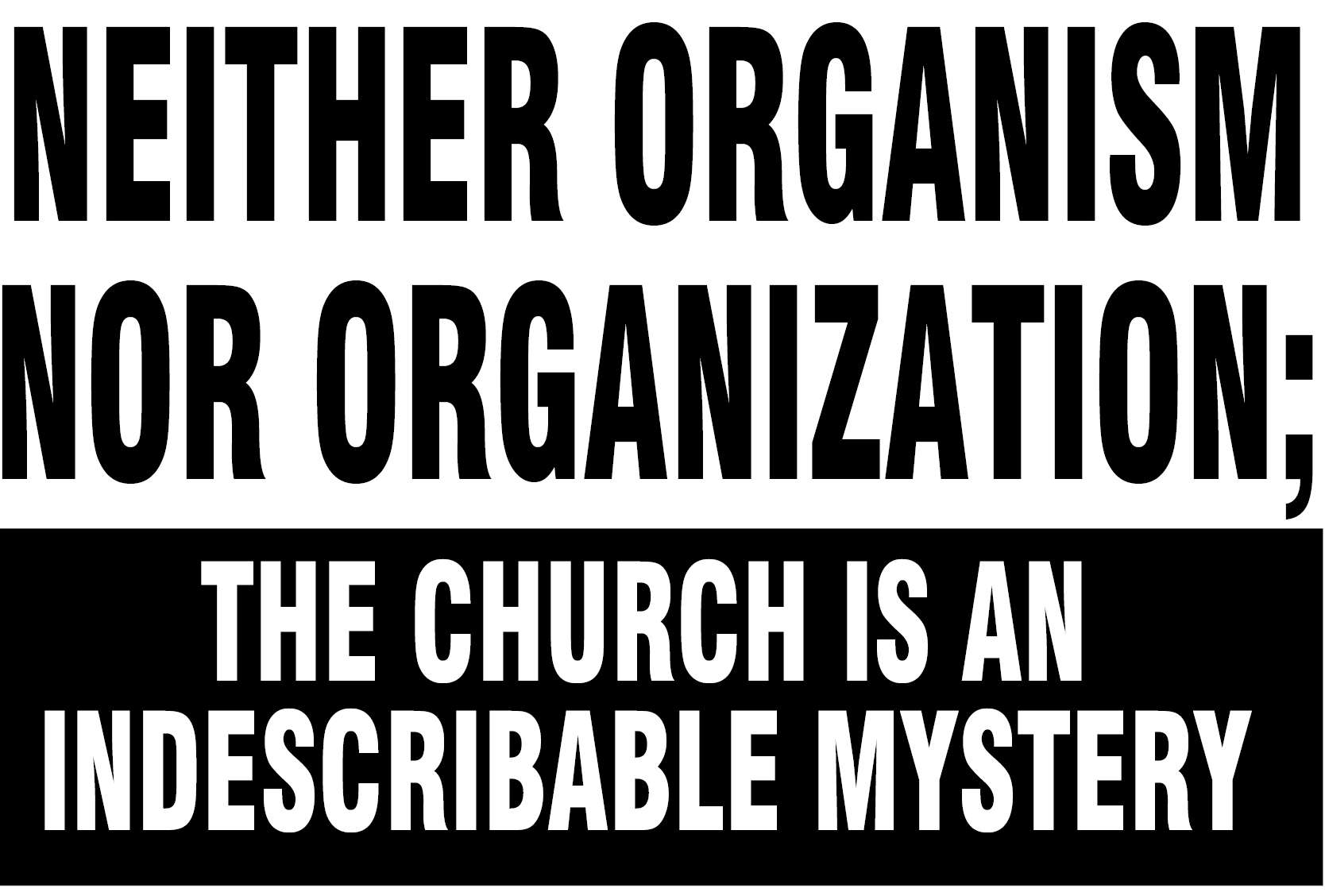

Workplace Evangelism
Dr. J. N. Manokaran
I. Introduction
Jurong Bird’s Park is a popular tourist attraction in Singapore. It has been designed in an area of about 20.2 hectares in the Jurong hill slope. In this aviary there are about 5000 birds from 400 species. The free-flight aviary is designed in such a way the bird could fly up to a certain height. Beyond that are nets the birds may touch or hit but cannot go beyond. In other words, it is huge, enclosed iron nest for birds. Within the enclosure is a huge park with whole natural topography. Yet, the birds are restricted if not caged.
Sadly, many local congregations look like this park. The birds in Jurong Park have limited freedom. They can fly to a certain height and a certain distance. Many believers in the church are like that. Within the congregation they may engage in ministry, beyond that they cannot and even forbidden to do so by the pastor or denomination. Hence, they do not experience true freedom in Christ Jesus (John 8:36). Many have experienced in Christ, but again caged in a choking system. Lazarus rose from the dead, yet he had to be let loose from the corpse clothes. (John 11:44)
1.1 Mandate for evangelism
Making disciples is the mandate given to all disciples by the risen Lord Jesus Christ, who has all authority over heaven and earth. (Matthew 28:18-20) This is done by witnessing for the Lord. (Acts 1:8) Disciples mustalways share their reason for hope, to all who ask. (I Peter 3:15) Evangelism is sharing the gospel the life, ministry, death, burial, and resurrection of Lord Jesus Christ and persuading the hearers to choose Lord and Eternal Life.
1.2 Gospel for all
God loves all humanity; God has given the mandate to declare his love to whole humanity. It could be done in various contexts. Gospel could be shared in homes, offices, churches, institutions, offices, industries, market, malls, coffee shops, parks, prisons…anywhere. However, there are various terms used for evangelism done in various situations.
II. Defining terms
2.1 Lay ministers
Sharing the gospel is not just limited to ordained priests or pastors or ordained clergy or full-time workers. Sharing the gospel should be done by all believers. This is termed as ‘Lay ministries’ or ‘lay movement’. The lay people need continuous encouragement to be proactively involved in evangelism. During the era of missionaries serving in India from the West trained lay people to preach, teach, evangelize. Many schoolteachers were simultaneously church catechists.
2.2 Tentmakers
In Missions, there were professionals who went into foreign nations where Christianity was prohibited and shared the gospel. Tentmakers also work in strategic places, where regular missions may not be possible. An University professor could be a tentmaker as mission to students is not possible in several institutions. They were called as Tentmakers taking the biblical model of Paul who engaged in tentmaking to support himself. (Acts 18:1-4; II Thessalonians 3:18)
2.3 Bi-vocational ministers
In many urban places, the local congregation is unable to pay full-time pastors. Hence, few pastors engage in a vocation to support themselves three or four days a week and give rest of time for mission. They are called Bi-vocational ministers as they pursue two vocations simultaneously. When the church grows and is able to support them, they may become full-time ministers.
2.4 Marketplace evangelism
Marketplace evangelism is another word today. People who are in marketplace or business centers as professionals, businesspeople, executives share the gospel wisely and strategically and make disciples.
2.5 Workplace evangelism
Workplace evangelism is also sharing the gospel in the workplace: industry, factory, office, institutions, hospitals…etc. If the average person spends at least eight hours on work, five days per week, this adds up to 2,080 hours a year in the workplace setting and community.
2.6 Prayer evangelism
One organization has prayer booths in marketplaces, malls, parks…etc., with volunteers willing to offer prayers. People can share their problems and needs; the volunteer will pray. God hears prayers and answers through guidance, visions, healings, deliverance, peace, miracles, signs and wonders.
2.7 Lifestyle evangelism
Now there are others who wish to do Lifestyle evangelism, i.e., to live out the gospel but not preach. They do not communicate the gospel verbally, but only with their deeds, relationships, and behaviours. Thus, they create an interest in the gospel. However, many bible scholars do no approve this as verbal proclamation is part and parcel of gospel communication.
There are other evangelism methods like: Apartment evangelism, train evangelism, mall evangelism, mela evangelism, sports evangelism…etc.
III. Biblical understanding
Aquila and Priscilla were tent makers who worked in the city of Rome. It is believed in 49 AD Claudius Caesar exiled all Jewish people from Rome. The couple relocated to the city of Corinth. Paul also was seeking to evangelize the city of Corinth and met Aquila and Priscilla. Because they were of the same profession, i.e., tentmaking they worked together. (Acts 18:1-4) Paul was engaged in Workplace evangelism. As they worked together in making tents, Paul helped them to find Lord Jesus Christ and become His disciples.
Five step process
It is possible to discern five step process in workplace evangelism in which Paul was involved.
3.1 Engage
St. Paul got acquainted with Aquila and Priscilla because of their common profession. Bridges for the gospel can be built easily in modern society based on belonging to the same profession. I suppose that Paul used his identity as ‘tent maker’ and not as an apostle, to gain entry to their home. The business associates became family friends.In urban areas, the gospel communicated from Engineer to Engineer, Doctor to Doctor, Lawyer to Lawyer, Teacher to Teacher, Student to Student…etc is dynamic and effective.
3.2 Evangelize
Paul spent time with his business associates during regular working hours. His attitudes, speech, behaviour and values demonstrated the gospel. So, Aquila and Priscilla became disciples of Jesus Christ. The goal of Paul was not mere promotion of his business and survival but making disciples. Everything else was subordinate to the Great Commission. The new disciples accompanied Paul in his journey to Ephesus. May be, Paul wanted them to mature; so, he took them to be equipped for ministry.
3.3 Equip
The dynamic couple grew together in the knowledge of God as students of Paul. They were strengthened and equipped to minister by Paul. The couple, as a team was looking for potential disciples. Apollos was an eligible candidate. They were compe tent enough to minister to him. This was a turning point in the life of Apollos. Later, Apollos was recognized as an important leader of the church.
3.4 Establish
When Aquila and Priscilla saw that God was using them to bring people to Christ, they began to realize their call and ministry. And we read of the church that gathered in Aquila and Priscilla’s home. (I Corinthians 16:19) It is easy to invite a non-Christian to our home. A non-Christian may gladly come to a home rather than to a church. So, home becomes the base for making disciples.
3.5 Extend
For Aquila and Priscilla, local church was not the final vision, but Christ’s Great Commission. And their contribution for Great Commission task was recognized and appreciated by Gentile churches. (Romans 16:3,4)
IV. Earn right to be heard
It is always good to have credibility to share the gospel. In the workplace, people have to respect a believer. Without honouring a disciple, people will be reluctant to hear the gospel.
4.1 Excellence
Believers should excel in their workplace. (Colossians 3:23)Excellence is diligence, hard work and integrity. Whatever disciples do should do with all his/her might. (Ecclesiastes 9:10) That means involving the whole person: mind (concentration), emotions (joy fully) and body (strength)
4.2 Walk your talk
A believer cannot be a hypocrite. The words and deeds should match. Living out biblical principles in workplaces is important. In any profession, bringing ‘Christ-likeness’ is a great challenge.
4.3 Model worker
A disciple should demonstrate not only excellence in workplace or marketplace, should become a model for others to follow. They should be pointed out as the example or model for all other workers.
4.4 Mentor
Teaching, training, and mentoring is an expensive investment in terms of time and energy. By working for the welfare of others, Christ love is demonstrated. This relationship is the channel for communication of the gospel.
4.5 Punctuality
Christian workers should be example in keeping time. Punctual in performing the duties, reporting, accounting. Should not delay or postpone the duties.
4.6 Proactive
Christians should be proactive in the workplace. Being first to help people who are in need in the office is essential. Walking the second mile should be their attitude.
V. Preparation
There are three aspects of preparation:
5.1 Personal testimony
All disciples should prepare their testimony. The testimony should have three parts. This is the template: Life before knowing Lord Jesus Christ; how s/he came to Christ and the changed life. This is the model Paul followed when he spoke the Jewish mob in Jerusalem. (Acts 22: 1-21) All three elements should be of equal number of words or time taken to communicate. Believers should be able to share in three sentences – one sentence for each section in the template. It could be expanded to five sentences for each section. Then it could be ten or fifteen sentences for each section. In the model digital world, testimony could be recorded in several formats in audio and video form. One minute, three minutes and fifteen minutes formats could be adapted.
5.2 Gospel essentials
Disciples should be disciplined and should know to share the gospel in coherent manner. There are at least four aspects to be shared. They are: Gospel events, gospel truths, gospel demands and gospel promises. First, gospel events are based on the Saviour and Lord Jesus Christ. Sharing the life on the Lord from Virgin birth to ministry, cross, death, burial, resurrection, and ascension. Second,Gospel truths are about Lord’s sinless humanity, purpose of his death, significance of His resurrection, importance of ascension and hope of His glorious Coming. Lord Jesus claims: as the Light of the world, the Way, the Truth, the Life, the Resurrection, the Good Shepherd, the Gate should be clearly explained. Third,Gospel demands a person should respond. A person should exercise his/her faith on Lord Jesus Christ. S/he should be willing to take up the cross and follow Lord Jesus. Repentance, forsaking sins, restoration, and reconciliation should be taught. Four,Gospel promises includes forgiveness of sins, declared righteous, becoming His children, adapted to family, sealed by the Holy spirit and assurance of heaven. Blessing in this world for believers which are intrinsic like peace, joy, love, confidence, hope, positive attitude and freedom from all sinful, human, cultural and traditional bondages.
5.3 Defense – objections
In the workplace, there would be various kinds of people. They could be religious,nominal, atheist, agnostic, materialistic…etc. Frequently asked questions by these people should be known and reply should be prepared accordingly. For example, will always bring evolution and importance of science in their discussions and objections. Religious people will always object the exclusive claims of Bible and the only way for salvation. A prepared mind, expecting questions is essential for effective workplace evangelism.
5.4 Prayer and Intercession
God has given his disciples the wonderful privilege of prayer and intercession. Praying for others who are in the workplace, especially for their salvation is important. Many times, others seek prayer help. A believer should be always prepared to pray and intercede for those who request prayer.
VI. Mobilization of Local church
Workplace evangelism is the outflow of a healthy local church. The Church that has vision for the lost will mobilize the whole congregation to be witnesses, tentmakers and missionaries wherever they are and wherever they go.
6.1 Recognized
The local church is the community that discovers, discerns, develops and deploys the calling, gifting and talents for the glory of God. Each believer is unique, placed in a specific context by the sovereign Lord. They ought to be witnesses there. The local church trains them for that.
6.2 Authorized
The local church should initiate, equip, encourage and authorize the ministry of all believers. Local church should organize training or connect with those organizations that provide special programmes for various contexts.
6.3 Licensed
In some denominations the people who are involved in such ministry are given credentials. This is a way of affirmation of their mission and ministry and gives them an identity as minister of the Lord.
VII. Challenge
There are good believer couples who could be excellent counsellors and ministers like Aquila and Priscilla in the workplace. There are educated believers who could reach out to intelligentsia. There are many creative people who can produce awesome content in digital media. However, they are not motivated, mobilized, equipped and deployed for His Kingdom. Thus, the loss is great for the Kingdom of God. Harvest is plenty, labourers are few, sadly, many labourers are tied with dead person clothes like corpses.































